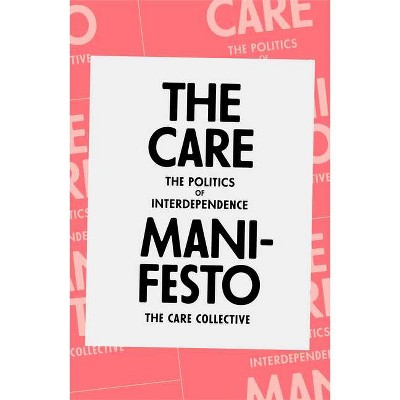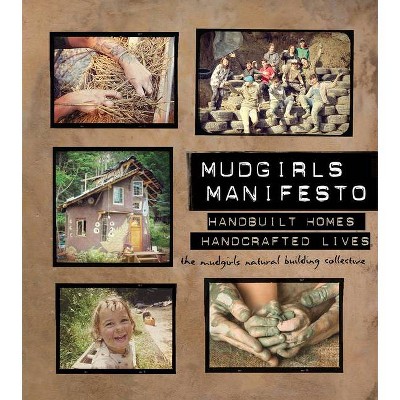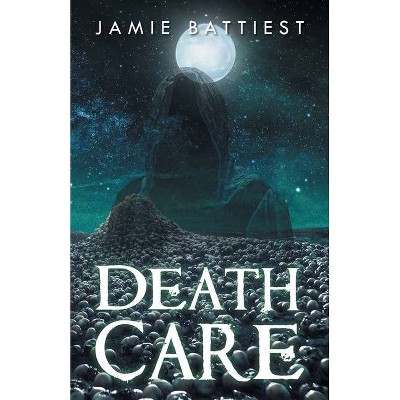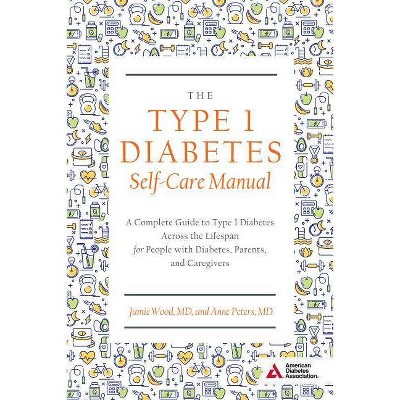The Care Manifesto - by The Care Collective & Andreas Chatzidakis & Jamie Hakim & Jo Litter & Catherine Rottenberg (Paperback)

Similar Products
Products of same category from the store
AllProduct info
<p/><br></br><p><b> About the Book </b></p></br></br>"The Care Manifesto puts care at the heart of the debates of our current crisis: from intimate care--childcare, healthcare, elder care--to care for the natural world. We live in a world where carelessness reigns, but it does not have to be this way. The Care Manifesto puts forth a vision for a truly caring world. The authors want to reimagine the role of care in our everyday lives, making it the organising principle in every dimension and at every scale of life. We are all dependent on each other, and only by nurturing these interdependencies can we cultivate a world in which each and every one of us can not only live but thrive. The Care Manifesto demands that we must put care at the heart of the state and the economy. A caring government must promote collective joy, not the satisfaction of individual desire. This means the transformation of how we organise work through co-operatives, localism and nationalisation. It proposes the expansion of our understanding of kinship for a more 'promiscuous care'. It calls for caring places through the reclamation of public space, to make a more convivial city. It sets out an agenda for the environment, most urgent of all, putting care at the centre of our relationship to the natural world" --Amazon.ca.<p/><br></br><p><b> Book Synopsis </b></p></br></br><b>We are in the midst of a global crisis of care. How do we get out of it?</b> <p/><i>The Care Manifesto</i> puts care at the heart of the debates of our current crisis: from intimate care--childcare, healthcare, elder care--to care for the natural world. We live in a world where carelessness reigns, but it does not have to be this way. <p/><i>The Care Manifesto</i> puts forth a vision for a truly caring world. The authors want to reimagine the role of care in our everyday lives, making it the organising principle in every dimension and at every scale of life. We are all dependent on each other, and only by nurturing these interdependencies can we cultivate a world in which each and every one of us can not only live but thrive. <p/><i>The Care Manifesto</i> demands that we must put care at the heart of the state and the economy. A caring government must promote collective joy, not the satisfaction of individual desire. This means the transformation of how we organise work through co-operatives, localism and nationalisation. It proposes the expansion of our understanding of kinship for a more 'promiscuous care'. It calls for caring places through the reclamation of public space, to make a more convivial city. It sets out an agenda for the environment, most urgent of all, putting care at the centre of our relationship to the natural world.<p/><br></br><p><b> Review Quotes </b></p></br></br><br>"<i>The Care Manifesto</i> is a radiant invitation to transform our economy and society, a roadmap for how we can emerge from overlapping crises and weave a new social fabric. The ethic of universal care is an antidote to the spiralling carelessness that our current system shows towards people and the planet. The authors understand that care is not a commodity: it's a practice, a core value, and an organizing principle on which a new politics can and must be built." <br><b>--Naomi Klein, author of <i>On Fire</i></b> <p/> "Finally a 'care manifesto' that shows how powerful caring can and should be in changing global practices and institutions and in transforming our world! No longer a private concern nor the exclusive preoccupation of moralists speculating about the essential feminine, care is given by this text in the form of a bracing critique of neo-liberal profit-making. <i>The Care Manifesto</i> charts a path toward the transformation of kinship, the gendered division of labor, ecological activism, and secures the principles of interdependence that should guide progressive transnational institutions." <br><b>--Judith Butler, author of <i>The Force of Nonviolence</i></b> <p/> "Why do we live in a world that rewards the uncaring, the care-free and the care-less? How long can we tolerate such a state? Not long according to this vital, urgent and compelling book about why radical change is needed. The manifesto not only critiques uncaring governments and corporations, but also offers an alternative. There is one and we desperately need it."<br> <b>--Bev Skeggs, Distinguished Professor, Lancaster Univeristy</b> <p/> "This manifesto is a call to action for global progressives. The Care Collective shows the 'systemic carelessness' of existing political, economic, and kinship orders are broken both for humans and the planet. They demonstrate that capacious care offers a practical and already existing starting point for change on all levels."<br> <b>--Joan Tronto, author of <i>Caring Democracy</i></b> <p/>"An inspiring and revolutionary call for an economy and society based on caring for the earth and each other ... rings with both freshness and familiarity, moral clarity and political necessity. It's wonderful."<br><b>--Avi Lewis, <i>The Leap</i></b> <p/>"Rais[es] fundamental questions about care and caring in the contemporary context."<br><b>--<i>Morning Star</i></b> <p/> "Robustly analytical ... the current crisis has forced the always urgent issue of care into the spotlight."<br><b>--<i>Observer</i></b> <p/>"The book of 2020 because not only does it find a way out of the crisis but it lays the basis for something better in its place."<br><b>--<i>Labour Hub</i></b> <p/>"The ideas in the book are laudable and important."<br>--<b>Emily Kenway, <i>Red Pepper</i></b><br><p/><br></br><p><b> About the Author </b></p></br></br><b>The Care Collective</b> was formed in 2017, originally as a London-based reading group aiming to understand and address the multiple and extreme crises of care. Each coming from a different discipline, we have been active both collectively and individually in diverse personal, academic and political contexts. Members include Andreas Chatzidakis, Jamie Hakim, Jo Littler, Catherine Rottenberg, and Lynne Segal.
Price History
Price Archive shows prices from various stores, lets you see history and find the cheapest. There is no actual sale on the website. For all support, inquiry and suggestion messagescommunication@pricearchive.us









![Care Bears: The Care Bears Movie [DVD] [1985]](https://pisces.bbystatic.com/image2/BestBuy_US/images/products/8238/8238105_so.jpg)










